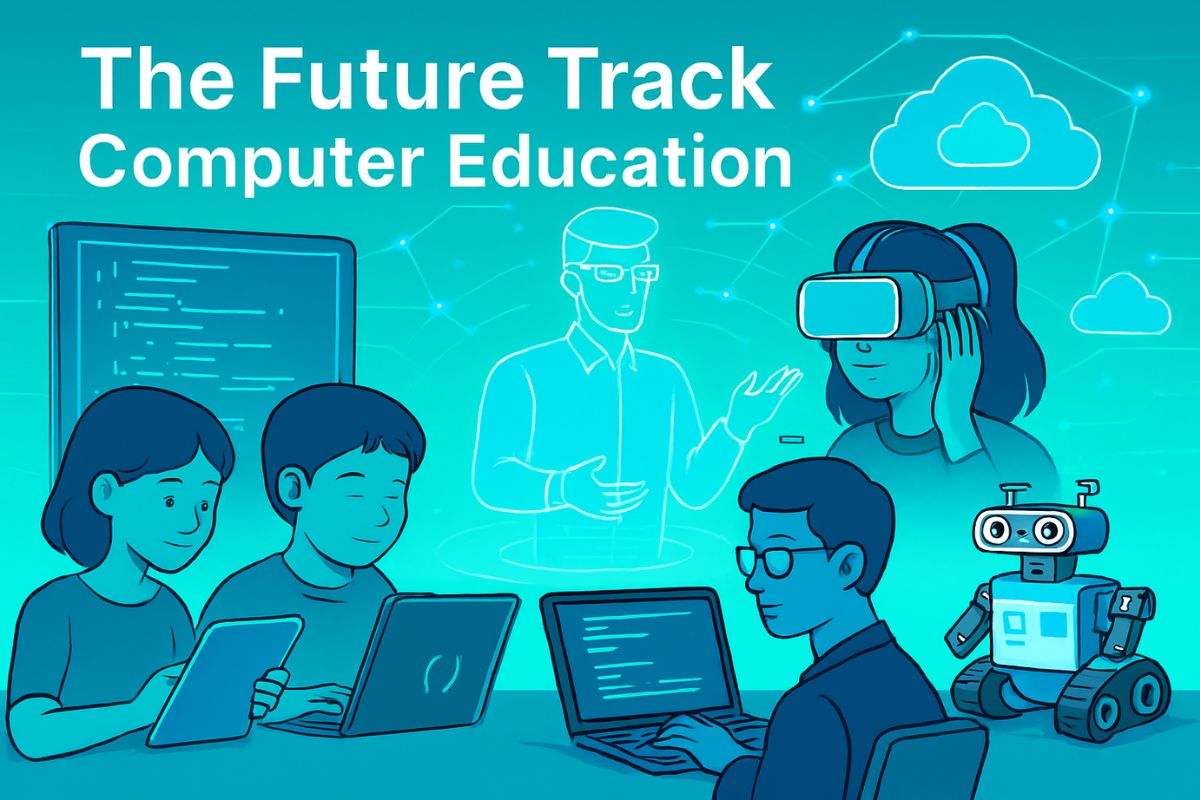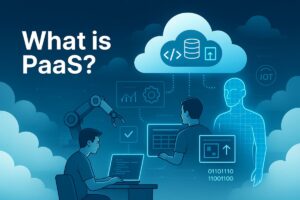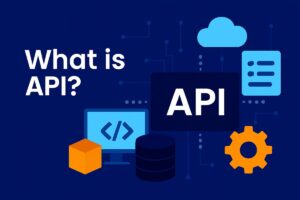- The future track computer education is transforming with AI, cloud computing, and emerging technologies.
- New learning models include personalized learning, project-based education, and skill-based certifications.
- Demand for coding, cybersecurity, data science, and ethical AI skills is growing rapidly.
- Online platforms, VR, AR, and global certifications are redefining how computer education is delivered.
- This blog covers key trends, challenges, solutions, and expert insights on navigating the future of computer education.
In this fast-evolving era, the way we learn is transforming alongside the rapid advancements in technology. The future track computer education is no longer confined to dusty classrooms and rigid curriculums. Instead, it’s becoming dynamic, personalized, and closely aligned with real-world demands. For curious learners, educators, and professionals, understanding these changes is crucial to staying ahead. In this blog, we explore how computer education is transforming, what skills will dominate the future, and how you can prepare for the next wave of technological advancement.
Why The Future Track Computer Education Matters
Computer education is the backbone of our digital economy. As technology advances, industries demand a workforce equipped with cutting-edge skills. Here’s why understanding the future track computer education is essential:
- Rapid Technological Advancements: AI, blockchain, IoT, and cloud computing are becoming mainstream.
- Global Workforce Needs: Employers prioritize skills over degrees.
- Flexible Learning Opportunities: Online courses, bootcamps, and certifications offer alternative pathways.
- Career Growth: High-paying tech jobs are evolving constantly.
Key Trends Shaping The Future Track Computer Education
1. Personalized and Adaptive Learning
- AI-driven platforms analyze student performance and adapt content accordingly.
- Customized learning paths based on individual strengths and weaknesses.
- Real-time feedback and assessments enhance learning outcomes.
2. Rise of Micro-Credentials and Certifications
- Short, targeted courses focusing on specific skills.
- Industry-recognized certifications from global tech companies.
- Flexible learning schedules suited for working professionals and students.
3. Integration of Emerging Technologies
- Virtual Reality (VR) & Augmented Reality (AR): Immersive simulations for coding, networking, and cybersecurity.
- AI and Machine Learning Labs: Hands-on experience with real-world data.
- Cloud-Based Platforms: Scalable resources for remote learning.
4. Emphasis on Soft Skills
- Critical thinking, problem-solving, communication, and teamwork.
- Cross-functional collaboration across global teams.
- Ethical considerations in AI and data usage.
5. Industry-Academia Collaboration
- Joint curriculum development with tech companies.
- Internship and apprenticeship programs.
- Real-world projects integrated into coursework.
Core Subjects Driving The Future Track Computer Education
| Subject Area | Importance | Key Topics |
|---|---|---|
| AI & Machine Learning | High | Neural Networks, Deep Learning, NLP |
| Cybersecurity | Very High | Ethical Hacking, Network Security, Compliance |
| Data Science & Analytics | High | Big Data, Predictive Analytics, Data Visualization |
| Cloud Computing | High | AWS, Azure, Google Cloud, DevOps |
| Software Development | High | Full-Stack Development, App Development, APIs |
| Blockchain | Medium | Smart Contracts, Cryptocurrency, Decentralized Apps |
Challenges in The Future Track Computer Education
1. Accessibility and Digital Divide
- Limited internet access in rural and underdeveloped areas.
- High cost of advanced training programs.
- Need for government and private sector collaboration.
2. Curriculum Lag
- Traditional education systems struggle to keep pace with rapid tech changes.
- Outdated syllabi fail to address emerging skill requirements.
3. Quality Control
- Proliferation of low-quality online courses.
- Lack of standardization across certifications.
Solutions and Best Practices
- Government-funded digital literacy programs.
- Collaboration with global edtech platforms.
- Industry-standard curriculum frameworks.
- Continuous professional development for educators.
The Role of Online Platforms in The Future Track Computer Education
Popular Platforms Leading the Way:
- Coursera, edX, Udacity: University-level courses with certificates.
- Udemy, LinkedIn Learning: Affordable skill-based modules.
- Khan Academy, Codeacademy: Free foundational courses.
Advantages:
- Anytime, anywhere learning.
- Self-paced modules.
- Practical, project-based learning.
- Access to global instructors and peers.
The Indian Perspective: The Future Track Computer Education in India
Government Initiatives
- National Education Policy (NEP) 2020: Focus on skill-based education.
- Digital India Program: Improving digital infrastructure.
- AI for Youth Program: Early exposure to AI and coding in schools.
Popular Career Paths Emerging in India
- AI Engineer
- Cybersecurity Analyst
- Cloud Solutions Architect
- Full-Stack Developer
- Data Scientist
- Blockchain Developer
Challenges Specific to India
- Language barriers in accessing global content.
- Regional disparity in education quality.
- Need for affordable, localized content.
Top Skills for The Future Track Computer Education
- Programming Languages (Python, Java, JavaScript)
- AI & Machine Learning Algorithms
- Cybersecurity Protocols
- Data Analysis & Visualization
- Cloud Architecture
- Blockchain Fundamentals
- Internet of Things (IoT)
- DevOps Practices
- UX/UI Design
- Digital Project Management
Traditional vs Future Track Computer Education
| Parameter | Traditional Education | Future Track Computer Education |
| Curriculum | Static, Theory-based | Dynamic, Industry-aligned |
| Delivery | Classroom-based | Online, Hybrid, Immersive |
| Assessment | Exams | Projects, Real-world Problems |
| Flexibility | Low | High |
| Cost | Often High | Affordable, Modular |
The Global Impact of The Future Track Computer Education
- Remote Work Revolution: Skills applicable worldwide.
- Global Certifications: Credentials recognized across borders.
- International Collaboration: Access to global projects and teams.
- Cross-Cultural Learning: Exposure to diverse perspectives.
Preparing Yourself for The Future Track Computer Education
- Stay updated with tech news and trends.
- Enroll in short-term certifications.
- Participate in online communities and forums.
- Build real-world projects and portfolios.
- Seek mentorship and internships.
FAQs
Q1: What is the future track computer education? The future track computer education refers to the evolving landscape of computer education that integrates emerging technologies, flexible learning models, and industry-relevant skills to prepare students for modern tech careers.
Q2: Why is the future track computer education important? It is crucial because traditional education often lags behind industry needs. The future track computer education ensures learners acquire relevant, up-to-date skills that are in demand globally.
Q3: What skills are most important in the future track computer education? Skills like AI, machine learning, cybersecurity, cloud computing, blockchain, data science, and programming are at the core of the future track computer education.
Q4: How does AI impact the future track computer education? AI personalizes learning experiences, offers real-time feedback, enables adaptive curriculums, and provides hands-on labs to simulate real-world scenarios, making learning more effective.
Q5: Is online education part of the future track computer education? Absolutely. Online platforms offer flexible, affordable, and globally accessible education, allowing learners to balance their studies with work or other commitments.
Q6: How does India benefit from the future track computer education? With initiatives like NEP 2020 and Digital India, India is making strides in digital literacy, offering more students access to quality education and global career opportunities.
Q7: Are degrees still important in the future track computer education? While degrees hold value, many employers prioritize skill-based certifications, real-world experience, and project portfolios over formal qualifications.
Q8: How can students start preparing for the future track computer education? Students should focus on learning coding languages, participating in online courses, building personal projects, seeking internships, and staying updated on tech trends.
Q9: What challenges does the future track computer education face? Challenges include the digital divide, outdated curriculums, inconsistent course quality, and ensuring equal access to high-quality education for all.
Q10: Will traditional universities become obsolete? Not entirely, but universities must adapt by integrating flexible learning models, industry collaborations, and technology-driven curricula to remain relevant.
Conclusion
The future track computer education is not just a trend; it’s a necessity in our technology-driven world. As industries evolve, so must our approach to learning. By embracing emerging technologies, focusing on skill development, and leveraging global platforms, students and professionals can position themselves at the forefront of this exciting transformation. Stay curious, stay updated, and start your journey into the future track computer education today.
Got questions or insights? Share your thoughts in the comments below and join the conversation!



